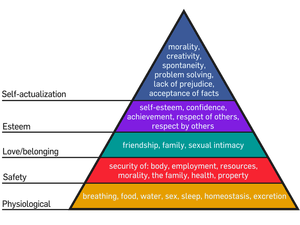Change of Plans: Introducing The Character Motivation Thesaurus
Recently Becca and I announced that our next thesaurus would be the Human Needs Thesaurus. And people got excited, and why the heck not, because the very fiber of a story is indeed the need that drives your character to act. We were excited too…until we worked up our template and realized what we really wanted to talk about was Needs and Goals, and that our original thesaurus idea was too narrow. So, we stepped back and tried again, and POW, came up with something amazing.
The Character Motivation Thesaurus
 This thesaurus will help you unravel some of your biggest story questions by specifically focusing on what your character wants (outer motivation), why they want it (inner motivation), how they might achieve their goal, and what stands in their way.
This thesaurus will help you unravel some of your biggest story questions by specifically focusing on what your character wants (outer motivation), why they want it (inner motivation), how they might achieve their goal, and what stands in their way.
We will look at common story goals most often portrayed in books and film that center around fulfilling the protagonist’s missing Human Need, the common ingredient in any change arc. Here are the areas each entry will cover:
A Character’s Goal (Outer Motivation)
All stories feature a protagonist with a goal, something they are determined to achieve by the story’s end. This story goal matters to them; it’s personal in some way. Every action, choice, and sacrifice is made with the singular focus of achieving the mission. The goal might be to bring a killer to justice, reach safety when one is lost in the woods, or find one’s birth parent. Whatever shape it takes, the goal is tangible.
The Human Need Driving the Goal (Inner Motivation)
When it comes to the change arc, a meaningful goal must have a WHY attached to it: why does the character want to achieve this particular goal? The why is what interests us as readers, because the why is an underlying universal human need that drives behavior.
According to famed psychologist Abraham Maslow, all individuals are driven by needs that fall into five basic categories:
If one of these needs is lacking, it creates a void—one that the character will go to great lengths to fill.
For example, if your character is safe, secure, and loved, yet craves the recognition and esteem of others, he will grow increasingly anxious and dissatisfied. Once this reaches a critical point, he will feel DRIVEN to make a change. His need for esteem and recognition will push him to act, and direct him toward a very specific, tangible goal. Perhaps he quits his job to go back to school and obtain a degree. Maybe he decides to fight his biggest rival for the promotion he knows he deserves. Or, perhaps he makes a plan to leave a toxic parental relationship that is rife with mental and emotional abuse.
These needs are universal, meaning they apply to everyone. Readers will understand the character’s yearnings for something more and to feel complete. This sets them up to care about the protagonist and want them to succeed.
Needs are powerful, and can alter a character’s personality or even force him to the edge of his own moral code (and sometimes beyond). Knowing which needs your character is missing will let you know how that lack will affect her. Like the all-important picture on the cover of a jigsaw puzzle box, this knowledge will help you piece together many other related elements that are important to her personality and your story.
Methods for Achieving This Goal
Whatever the goal is, your protagonist can go about trying to achieve it in different ways. For instance, a heroine with the goal of having a child could accomplish this by trying to conceive with her partner, but she could also pursue artificial insemination, undergo fertility treatments, adopt, or become a foster parent.
The route your character takes will depend largely on her personality and life circumstances; having a list of choices will help you to brainstorm a path that works for your story while sparking ideas for possible roadblocks, obstacles, complications, and dangers that might stand in her way.
How the Character May Prepare for This Goal
To make our story even more compelling, our characters should be somewhat unsuitable for what lies ahead. Both inwardly and outwardly, they will need to make changes: gaining new knowledge, seeking out help, training, learning new skills, shedding bad habits, or otherwise preparing themselves to achieve their goal.
Possible Sacrifices or Costs Associated with This Goal
For a goal to be meaningful, it often comes at a cost. Change is never easy, and moving toward something also means moving away from something else. The character may have to give up certain comforts, freedoms, habits, and fears if he is to move forward toward a new reality.
Roadblocks Which Could Prevent This Goal from Being Achieved
Our job as writers is to make sure whatever our protagonist wants, they have to fight for it. Conflict & tension are the butter we spread on storytelling bread, so for each goal, we’ll look at possible friction points (people and things) that can be used to block them. These roadblocks can also come from within, such as fears and insecurities that are holding your protagonist back, or moral lines that challenge their commitment to the goal.
Talents & Skills That Will Help the Character Achieve This Goal
Who your character is deep down is an important piece of the puzzle, because special skills and talents can help them with goal achievement. Listing out certain skill sets tied to a goal will provide ideas for possible talents you may wish to give your character so they can overcome the difficulties ahead.
Possible Fallout if the Need Driving This Goal Is Not Met:
Inner motivation (needs) and outer motivation (the goal) are bound together, and making the decision to chase a goal takes courage and a leap of faith. To make the story as compelling as possible, something needs to be on the line. Readers need to know what is at stake…what will happen if the protagonist fails to achieve his goal, and his critical need goes unmet.
Clichés to Avoid
Finally, as you can imagine when dealing with common goals, there may be some clichés all writers should be aware of. Above all, we want the story to be fresh and innovative. Knowing what the clichés are will help us think outside the box when it comes to a goal, giving readers a satisfying and rich ride.
Join us Saturday as we launch the first entry of this thesaurus!
Save
Save
Save
Save
Save
Save
Save
Save
Save
Save
Save
Save
The post Change of Plans: Introducing The Character Motivation Thesaurus appeared first on WRITERS HELPING WRITERS®.
Writers Helping Writers
- Angela Ackerman's profile
- 1014 followers




